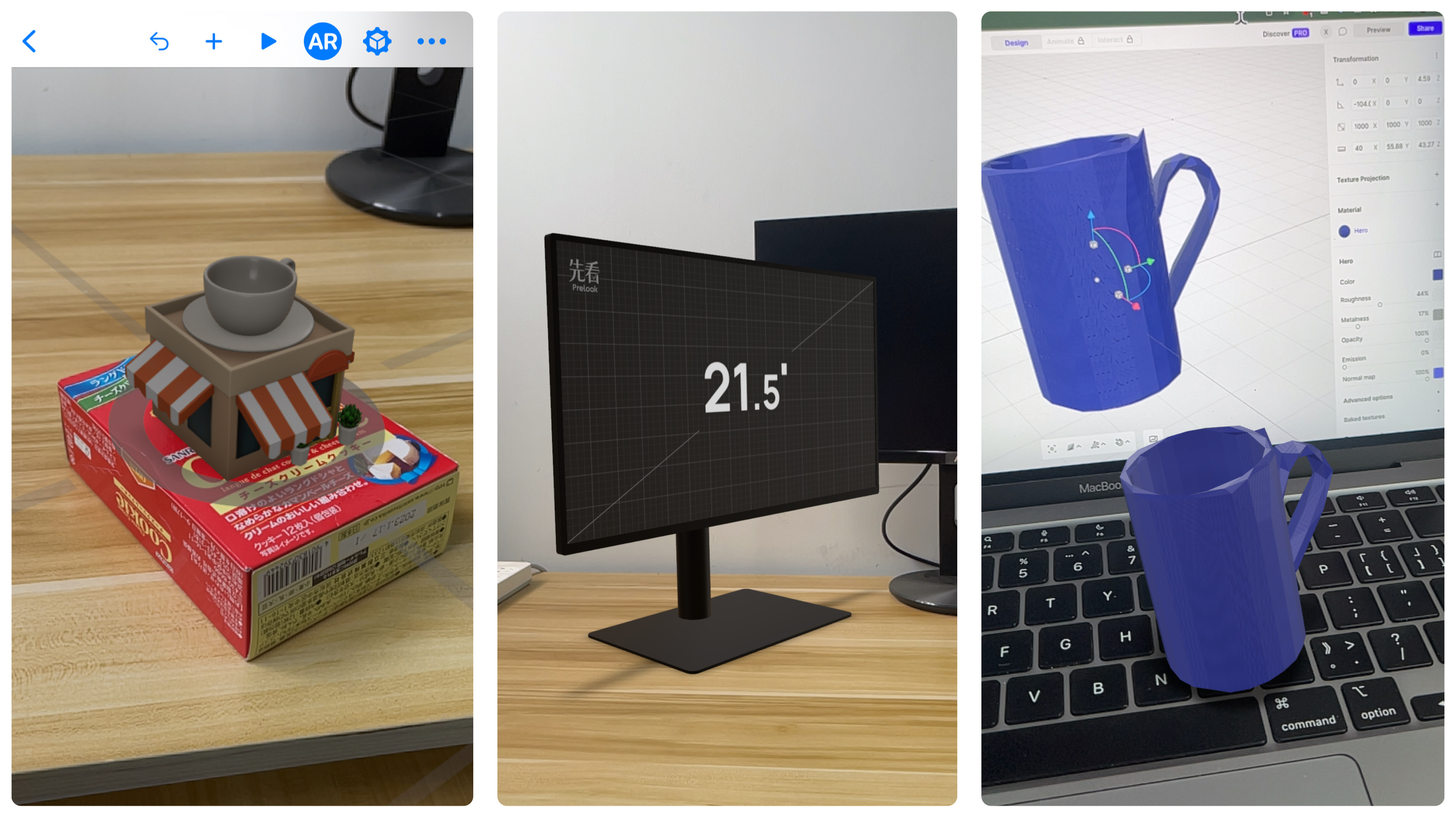Share some valuable content every month.
Formerly titled STAR Monthly @ 23.06. S for random Skill, T for video/audio Talk, A for Article, R for Review.
Considering the randomness of the shared content, it was difficult to match with specific themes, so the title was modified now.
Skill
Both Apple and Google provide built-in ways to view 3D models in AR on a mobile device. And using these methods is much easier than I thought before.
For example, for iPhone users, it only takes two steps:
- Obtain a USDZ file. It can be converted from your own .obj model (recommended to use the Vectary tool, better than RealityConverter from Apple), or just download some ready-made ones here to play with.
- use Reality Composer on the iPhone to add the USDZ object to a horizontal or vertical surface, or even anchor it to an image.

Update from future: I have found a more user-friendly platform, AR Code, which is suitable for finding some demos to try out.
Motivation: 如何用 AR 假装拿到了 iPhone 12, 先看 AR:把真实的产品放在你面前
Talk
Making Robots Smarter in both Body and Mind (ICRA 2023) from Marc Raibert (Chinese subtitle version)
The history of the legendary company Boston Dynamics and its ambition to “create the Bell Labs of Robotics”.
商业就是这样: Vol.113 “新一线”十年,中国城市大改变
Some stories about the development and changes of cities in China over the past decade.
Article
An Opinionated Guide to ML Research from John Schulman, OpenAI
- Read a lot of papers, and assess them critically. If possible, discuss them with others who have a deeper knowledge of the subject.
- Work in a research group with other people working on similar topics. That way you can absorb their experiences as well as your own.
- Seek advice from experienced researchers on what to work on. There’s no shame in working on ideas suggested by other people. Ideas are cheap, and there are lots of them in the air. Your skill comes in when you decide which one to work on, and how well you execute on it.
If you are working on incremental ideas, be aware that their usefulness depends on their complexity. A method that slightly improves on the baseline better be very simple, otherwise no one will bother using it—not even you. If it gives a 10% improvement, it better be 2 lines of code, whereas if it’s a 50% improvement, it can add 10 lines of code, etc. (I’m just giving these numbers for illustration, the actual numbers will obviously depend on the domain.)
One strategy, which I haven’t tried personally but makes a lot of sense upon reflection, is to devote some fixed time budget to trying out new ideas that diverge from your main line of work. Say, spend one day per week on something totally different from your main project. This would constitute a kind of epsilon-greedy exploration, and it would also help to broaden your knowledge.
Go forth and do great research!
Review
Using large models for high-level planning in the field of robotics is quite impressive, and it seems to be an irreversible trend.